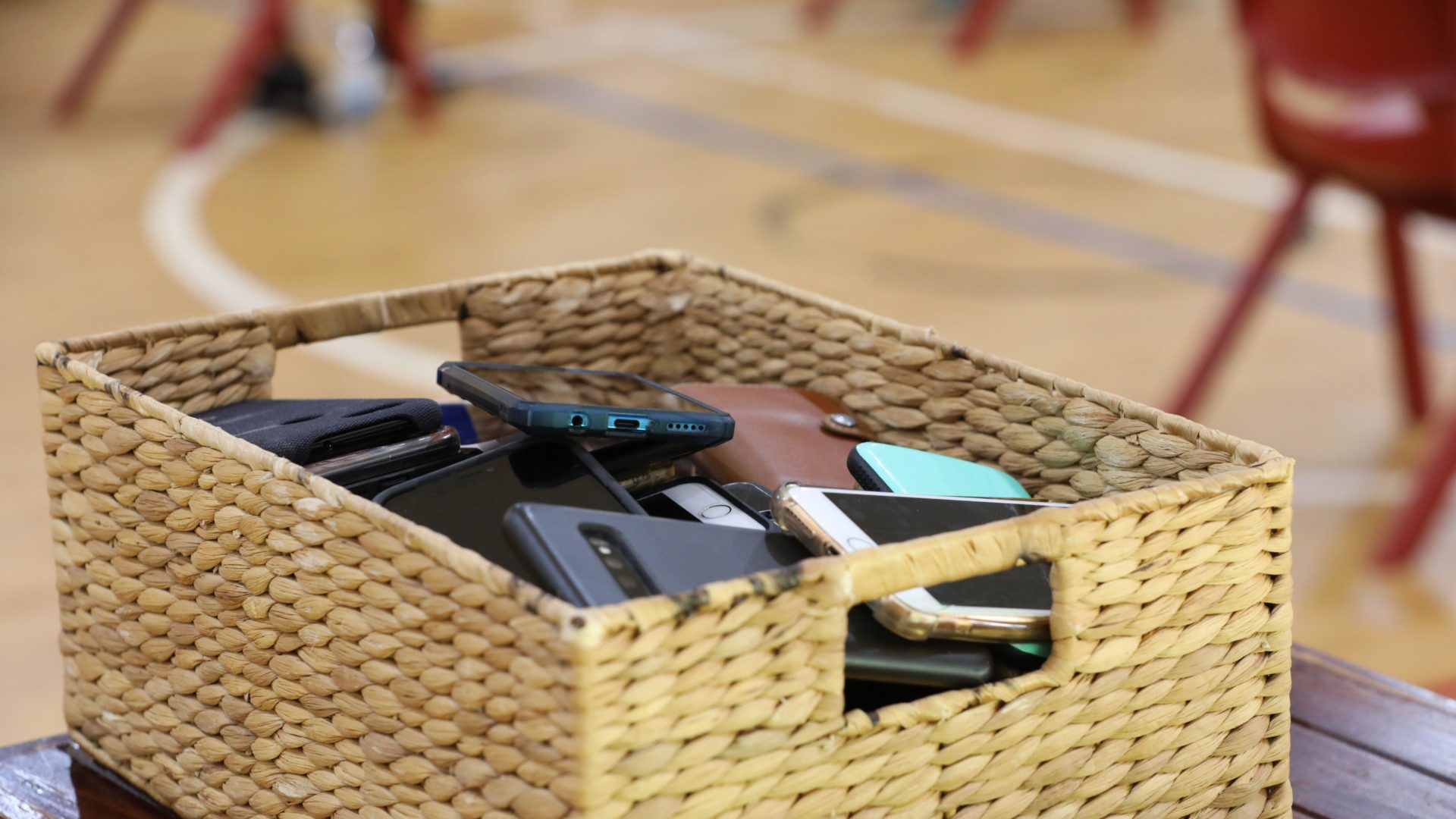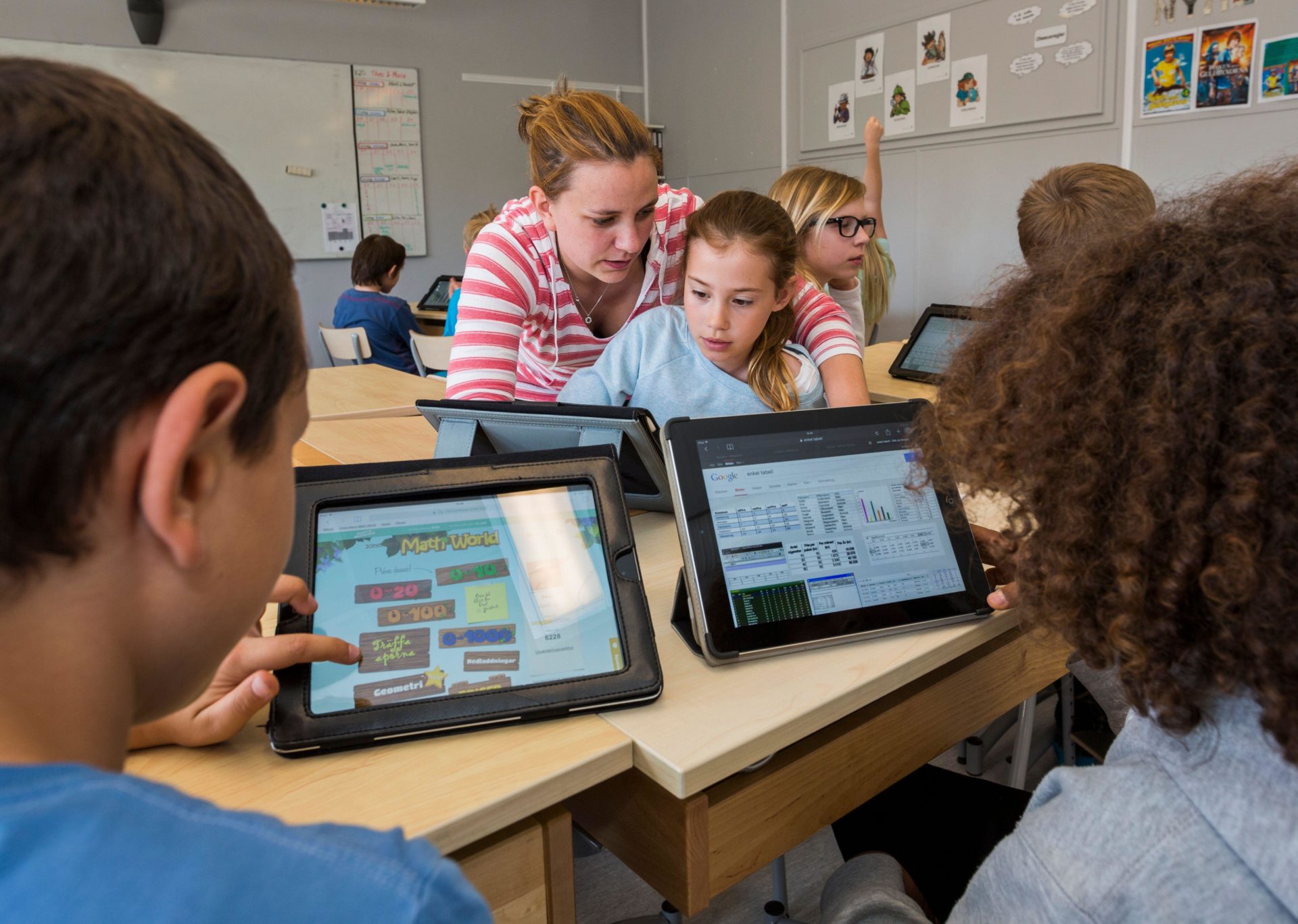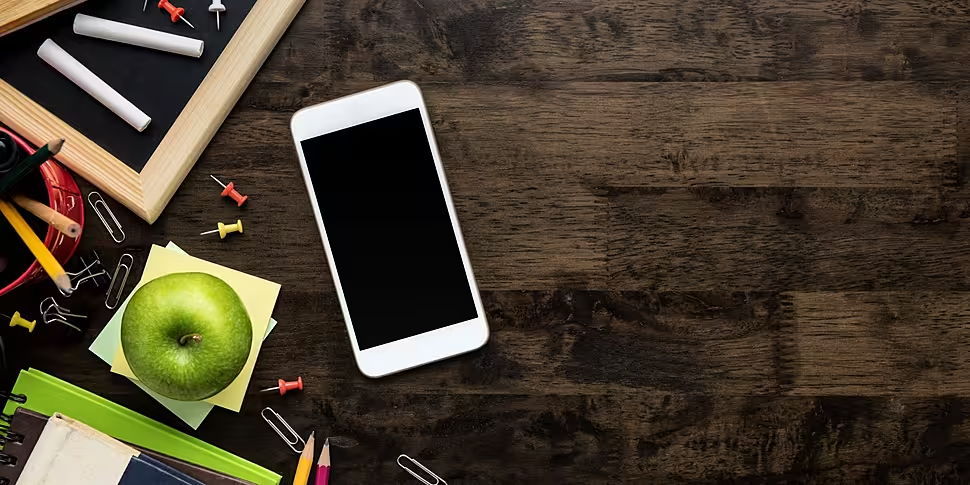Plan to legislate a ban on smartphones in school classrooms will have "no real impact in classrooms", according to one school principal.
Education Minister Norma Foley is reportedly drafting “legislative solutions” to ban smartphones in primary schools.
Principal Simon Lewis, however, told The Pat Kenny Show won’t make a difference in schools.
“I don't know a single primary school in the country that allows children to bring smartphones into the classroom,” he said.
“So, to me, this is just an idea that will have absolutely no real impact in classrooms because we're already doing it anyway.”
 A box in a classroom filled with smartphones. Image: Lbeddoe / Alamy Stock Photo
A box in a classroom filled with smartphones. Image: Lbeddoe / Alamy Stock PhotoMr Lewis noted creating official legislation on smartphones could raise questions about technology in schools in general.
"When you kind of legislate for like a particular thing like a smartphone, it leaves out other things like wearable devices that have internet connectivity," he said.
"Where do they stand? What happens then in terms of school intranet devices?"
“There's a lot to be thought about in this.”
'Bigger question'
Mr Lewis said legislation banning devices would not answer the “bigger question” about children using phones in schools.
“How are the children getting the smartphones in the first place?” he said.
“Why is it schools that are being asked to sort of manage all that - this is a societal problem.”
Mr Lewis said many schools initially encouraged children to use smart devices “six or seven years ago”, but now it’s having a disruptive effect.
“Anyone with a phone in their pocket right now is probably going to have a buzzing five or six times an hour,” he said.
“You also have the danger of social media becoming much more powerful where children can record what's going on in the classroom which can be unsafe for their peers or their teachers.”
'Brick-type phones are fine'
No child under 13 should have a smartphone, according to Mr Lewis.
“Brick-type phones are perfectly fine for knowing where your child is going to be or for them to contact you,” he said.
“But we know there is, I think, 50% of eight-year-olds now have their own smartphones.
“Schools aren’t providing the phones.”
 Children using iPads in classroom with teacher. Image: Michael Folmer / Alamy Stock Photo
Children using iPads in classroom with teacher. Image: Michael Folmer / Alamy Stock PhotoSmart devices can have important uses in the classroom, such as helping nonverbal children communicate, according to Mr Lewis, but they need to be used appropriately.
“iPads merely replaced books, rather than actually being devices used for what they’re good at,” he said.
“I always say if you're using an iPad to do the same thing you can do on a book, choose the book.
“Internet-connected devices can give children the ability to communicate in different ways.
“But if they're just merely being used to replace textbooks, then that’s poor use.”









